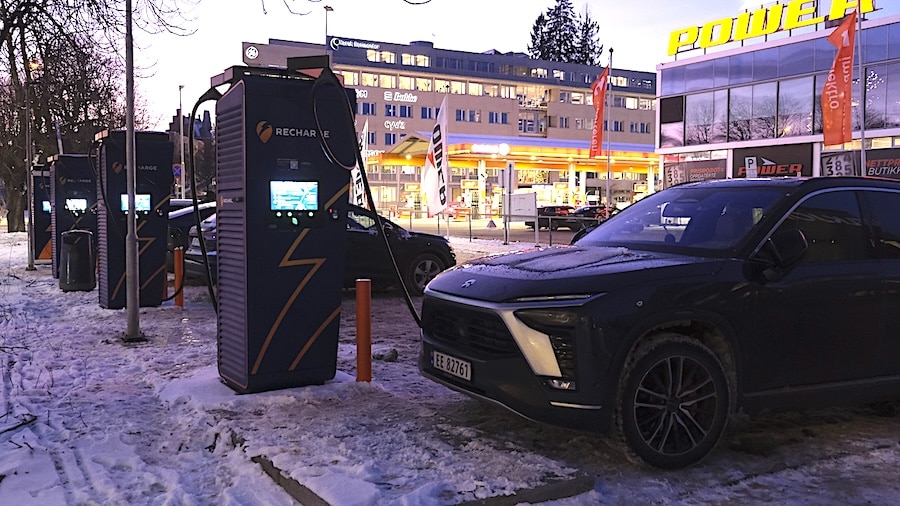This post was originally published on Eco Watch
According to new data from the Norwegian Road Federation (OFV), nearly 90% of new vehicles sold in Norway in 2024 were electric.
The data revealed that 88.9% of new car sales in 2024 were fully electric, up from the 82.4% of all car sales being EVs in 2023, Reuters reported. As the BBC reported, some months of sales in 2024 saw up to 98% of cars sold being fully electric.
The top two selling passenger cars in Norway last year included the Tesla Model Y and Tesla Model 3, according to the Norwegian Electric Vehicle Association (NEVA). Other top models included the Volvo EX30, Volkswagen ID.4, Toyota bZ4X, Skoda Enyaq, Nissan Ariya, Volkswagen ID.3, Audi Q4 e-tron and Hyundai Kona electric.
“Norway will be the first country in the world to pretty much erase petrol and diesel engine cars from the new car market,” said Christina Bu, secretary-general of NEVA, as reported by Reuters.
The transition is aided by dealerships such as Harald A. Møller, which has been operating in Norway for more than 75 years. The dealership recently removed all gas-fueled passenger vehicles in its showroom in favor of electric vehicles, BBC reported.
“We think it’s wrong to advise a customer coming in here today to buy an ICE [internal combustion engine] car, because the future is electric,” Ulf Tore Hekneby, CEO of Harald A. Møller, told BBC. “Long-range, high-charging speed. It’s hard to go back.”
In September 2024, electric vehicles out-numbered gas-powered cars for the first time in Norway, which also became the first country in the world for this to happen. By that point, 754,303 of the cars were fully electric, while 753,905 were gas-powered.
According to NEVA, for 2024, the total of fully electric passenger vehicles in Norway reached 788,836, while electric light-duty commercial vehicles reached 36,984.
While other countries are increasing the number of EVs sold, they are still far behind the progress made in Norway. For example, in November 2024, the UK hit its record for the share of EVs in total new car sales, with EVs making up about 25% of total car registrations for the month.
According to Reuters, EVs make up just 8% of total vehicle sales in the U.S. as of 2024, and hybrid vehicles have more demand compared to fully electric vehicles. Experts are also concerned that interest in EVs could plummet if President-elect Donald Trump removes the electric vehicle tax credits upon taking office.
“If you take true demand for the car and you eliminate the $7,500 benefit… it’s really going to change who wants them and how they buy them. So we’re preparing for that,” David Christ, head of sales and marketing for Toyota in North America, told Reuters.
By comparison, Norway has a goal to have an emissions-free car fleet this year, with all vehicles run by battery or hydrogen. According to Visit Norway, the country offers EV subsidies, lower cost parking for EVs, increased access to bus and taxi lanes, and strong charging infrastructure, including more than 3,000 public charging stations and more than 7,750 fast-chargers.
“Even in the northernmost parts of Northern Norway — an area with huge distances, more reindeer than people, and really low temperatures in the winter — you can get around easily in an EV,” Bu explained.
Further, Norway taxes gas- and diesel-powered vehicle purchases at a much higher rate to encourage the purchase and use of EVs.
The post Nearly 90% of New Car Sales in Norway Were EVs in 2024 appeared first on EcoWatch.





0 Comments